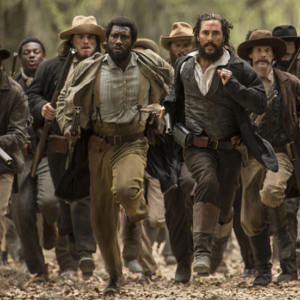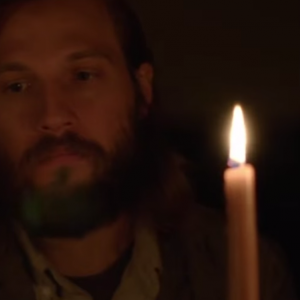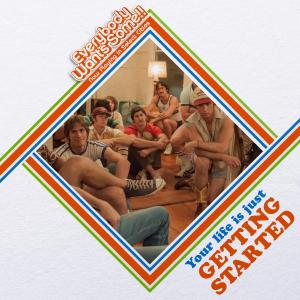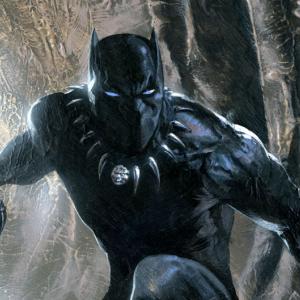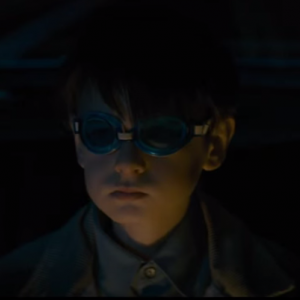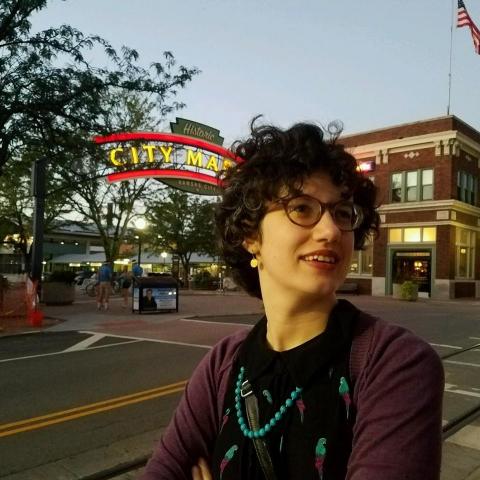
Abby Olcese (@abbyolcese) has been many things — a campus ministry leader at the University of Kansas, an English teacher in Prague, and an advertising assistant at Sojourners. These days, she’s a freelance writer based in Kansas.
Raised on a diet of Narnia, Bob Dylan records and Terry Gilliam movies, Abby is drawn to the weird, the nerdy, and the profoundly artsy corners of popular culture. She loves sharing this knowledge with others by writing about interesting new releases as well as lesser-known gems.
Abby is also passionate about the intersection of faith, social responsibility, and culture. She believes in the power of art to spark important conversations, inspire social change, and help people to better understand life in the kingdom of God.
When she’s not watching movies or writing things down, you can usually find Abby reading comic books or perusing the selection at her local record store.
Posts By This Author
'Queen of Katwe:' Chess, Uganda, and an Inspiring Underdog Tale
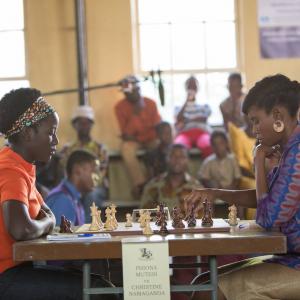
Image via Queen of Katwe/Facebook.
During Queen of Katwe’s premiere at the Toronto International Film Festival, director Nair, who lives in Uganda, quoted the motto of the Maisha Film Lab, a filmmaking program she founded in east Africa: “If we don’t tell our own stories, no one else will.”
The film’s admirable adherence to that ethic transcends whatever issues of length or performance it may have. Queen of Katwe is a movie committed to the real people whose story it tells, showing their struggles, strength, love and faith. No white savior required.
The Unremarkable But Enjoyable 'Magnificent Seven'
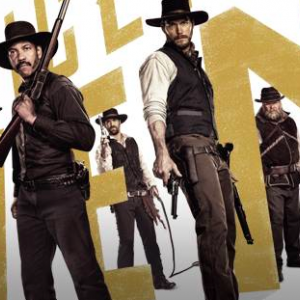
Image via The Magnificent Seven/Facebook.
From the very start, The Magnificent Seven posits itself not just as a film about good guys versus bad guys, but a story about downtrodden and disenfranchised people versus an oppressor. On a story level, that’s represented by the scared, victimized townsfolk of Rose Creek. But more importantly, it’s there in the casting choices for the heroes— a black man, leading a group that includes Mexican, Native American, and Asian characters — against an entitled white man whose authority rests solely in paying other men to do his dirty work.
'War Dogs' Could Have Been a Subversive Commentary. Instead, It's a Boring Buddy Comedy.

Bradley Cooper, Miles Teller, Jonah Hill, Todd Phillips at the 'War Dogs' LA premiere on Aug. 15. Helga Esteb / Shutterstock.com
War Dogs, though it comes complete with a frat boy humor pedigree (director and co-writer Todd Phillips is behind the Hangover movies), falls far short of the movies it aspires to be. The film had the potential be a subversive commentary on the international arms industry and American ideas of success. Instead it’s a dull slog that feels longer than it is, and essentially accomplishes nothing but a few cheap laughs.
Suicide Squad Fails Diversity, and Audiences
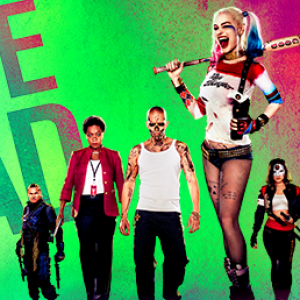
Image via Facebook.
But the film’s most problematic character is also one of its biggest: Harley Quinn. Margot Robbie gives a memorable, lively performance in the role, and shows she can take care of herself. But the character has a highly abusive, dependent relationship with Leto’s Joker, and David Ayer makes the big mistake of presenting it as a selling point of the film
'Ghostbusters' Flips Script, But Doesn't Change It
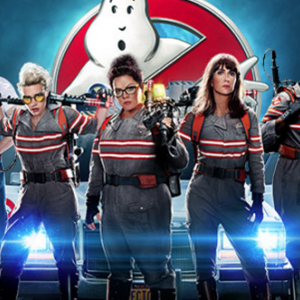
Image via "Ghostbusters" Facebook.
One of the original film’s strengths was its distinct, fully-formed personalities of its characters, as was getting to watch those personalities bounce off each other. And that was what made the idea of an all-female remake so intriguing, particularly since McCarthy, Wiig, Jones and McKinnon are all superb comedians
'Free State of Jones' Misses Its Mark
So changing our popular narrative about this era in our nation’s history means being more honest about the past. This is the admirable goal of Free State of Jones, a film about a real-life Mississippi farmer who led a rebellion against the Confederacy, made up of fellow farmers, escaped slaves, and army deserters.
'Finding Dory' a Much-Needed Hopeful Tale
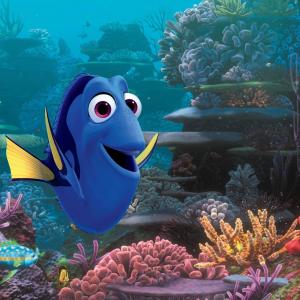
Image via Finding Dory on Facebook.
In some ways, the film is a retread of familiar territory. The rehabilitation center, which doubles as an aquarium, feels like an expanded take on the first film’s fish tank scenario, and employs similar characters and situations. Composer Thomas Newman also returns for a new approach to Nemo’s gorgeous score, with less memorable results.
But thematically, Dory is just as strong as its predecessor. By taking a closer look at its title character’s positive attitude, director and co-writer Andrew Stanton shows audiences that Dory isn’t simply optimistic, but hopeful and resourceful.
Call of Beauty
With complex stories and artful design, some video games inspire empathy, not mayhem.
WHEN WE THINK OF ART, we usually think of paintings, literature, or film: media that take us outside of ourselves and help us experience a time, place, feeling, or philosophy. Works of art have the potential to move us, sometimes profoundly.
What we don’t think of—not immediately, anyway—are video games. Games are artifacts of pop culture. At best, they’re fun, relatively benign distractions. At worst, they’re violent, desensitizing affairs promoting antisocial behavior. Video games are not, generally speaking, considered transformative or artistically ambitious.
But that might be changing. In recent years, developments in the gaming world covering everything from graphics to narrative structure are changing the low-culture perception of video games, with complex stories that challenge players and sometimes even help them consider the theological.
“Video games are this amazing reflection of how we see the world,” video game developer Ryan Green told Sojourners. “There’s a relationship between the player and the creator of the game that also reflects how we view God. You can see the hands of the designer at any given point.”
Letting love change you
Green and Numinous Games, the production company he co-founded with his wife, Amy, are at the forefront of this movement. They’re the creators behind That Dragon, Cancer, a game detailing the emotional and spiritual journeys of the Greens during their son Joel’s four-year battle with cancer, from which he died at age 5.
That Dragon, Cancer is an empathy game, a video game allowing players to interact and identify with a specific emotional or social experience, with the goal of making the player more sensitive to the issue it presents. In the case of That Dragon, Cancer, the Greens invite players to share their process of hope, doubt, and mourning through a series of interactive vignettes reflecting their experiences during Joel’s illness.
'The Lobster' Takes On One-Size-Fits-All Relationships

via 'The Lobster' on Facebook
Domestic partnership as portrayed in The Lobster is a cold, clinical affair that has nothing to do with love, but everything to do with fear. In the Hotel, single people are kept separate from couples. Daily activities include shooting, with paper targets shaped like single people; and awkward, joyless dances that resemble awkward middle school formals. Random exotic critters, presumably former guests, wander in and out of the frame, a constant reminder of the fate that awaits the singles should they fail to find a match.
'Civil War' Shows Us What Happens When Teams Fail
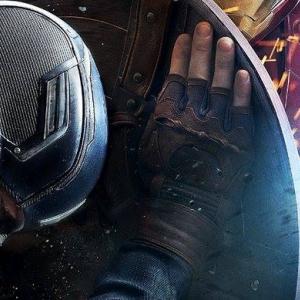
Image via Facebook/Captain America: Civil War
As any Marvel’s Avengers appreciator can tell you, a staple focus of each story is on team dynamics. What does it take for a group of people with different agendas and backgrounds to effectively work together for good? How does a team find common ground, and account for each others’ strengths and weaknesses?
As anyone who’s lived in Christian community (or worked in social justice) knows, these ideas come up as much in everyday life as they do when taking down a supervillain. But what Marvel hasn’t looked at is the other side of intentional community — what happens when a team can’t work.
Until now.
'Keanu' and the Black Nerd Action Hero
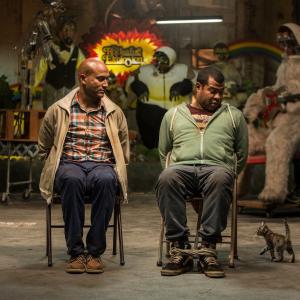
Via Keanu on Facebook.
Keegan-Michael Key and Jordan Peele have built successful comedy careers out of satirizing nerd culture and, as critic Wesley Morris so aptly put it in a 2015 essay, “locating what’s funny about race without losing what’s disturbing about racism.” When their popular Comedy Central sketch show Key & Peele ended its five-season run last year, fans were disappointed, but bolstered by the hope of larger projects on the horizon. The first of these anticipated follow-ups, the kitten-centric action comedy Keanu, is now in theaters.
'The Invitation' Asks Its Characters to Dinner, and Us How We Deal With Our Pain
The true purpose of the dinner party, and the reality behind Will’s suspicions, is a slow-burning, tense tale that works best the less the viewer knows going in. Suffice it to say that several characters come to the film with emotional baggage, and while Eden and David’s apparent bliss seems to have cured them of their problems, the source of that bliss — and its results — aren’t exactly as advertised.
The Invitation presents audiences with characters trying to move on from terrible experiences. It also presents two different ways of approaching the healing process, and the failing of a community to support those in pain.
'Everybody Wants Some!!' Proves Male-Focused Comedies Can Promote Healthy Masculinity
Inspired by director Richard Linklater’s experiences in college, Everybody Wants Some!! is an exuberant exploration of the excitement and challenges that come with finding yourself in college. While the film’s overwhelmingly male focus may seem regressive at first blush (it definitely wouldn’t pass the Bechdel test), it notably succeeds in promoting a positive, healthy form of masculinity, in a cultural climate when many popular examples are anything but.
Ta-Nehisi Coates' 'Black Panther' a Smart Take on Classic Hero
The announcement that The Atlantic correspondent and Between the World and Me author Ta-Nehisi Coates was writing a Black Panther comic for Marvel felt like the kind of matchup that only happens in dreams. Created in 1966, Black Panther was comics’ first mainstream black superhero. Coates is not only a groundbreaking writer on issues of race in America, but also happens to be an avowed Marvel fan. Since last September, comics readers familiar with Coates’ work have been waiting for the finished product with bated breath.
The first installment of Coates’ run on Black Panther, titled A Nation Under Our Feet, hit comic stores this week, and it looks like we’re in for a suitably dramatic mix of politics, character, and plot.
The Faith, and Fear, of 'Midnight Special'
Taken purely as entertainment, Jeff Nichols’ film Midnight Special is a smart, tersely constructed sci-fi adventure in the vein of classics such as E.T. and Close Encounters of the Third Kind. That it aspires to those heights alone (and it comes very close) makes it worth seeing. But what makes Midnight Special great is that it’s also a film about belief, or the desire to believe — one that advocates for sacrificial love over fear and control, and is content with asking more questions than it answers.
'Batman v. Superman' ... But Why?
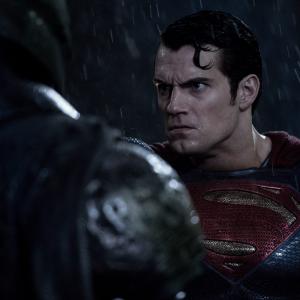
Photo via Batman v. Superman: Dawn of Justice on Facebook.
On screen and on the page, superheroes have long offered insight into clashing ideas about justice and freedom. Should we work within the law to obtain justice, or go outside of it when conventional methods aren’t enough? Are courts and law enforcement the best judge of punishment? And what is the proper reaction when we’re faced with new, uncertain changes in our reality?
These are complex, important questions that, given the heightened political atmosphere these days, couldn’t be more timely. While Batman v. Superman: Dawn of Justice ought to be just the place to discuss them, in the hands of director Zack Snyder and writers David S. Goyer and Chris Terrio, that opportunity is wasted.
'Weiner' Documentary Reveals Truth, In Ways the Politician Never Did

Image via LEE SNIDER PHOTO IMAGES/Shutterstock.com
The last days of Weiner’s mayoral campaign devolve into farce, with anxious aides running around and the candidate’s interactions with voters getting more and more contentious. While watching the ship go down is entertaining, what makes the story so fascinating is the boldfaced dishonesty at its core. Weiner the man misses what Weiner the film understands about his predicament: that being made a fool by trusting in the wrong person is an awfully hard thing to forgive.
Inside America's Prison Industry
A Q+A with Brett Story, director of 'The Prison in 12 Landscapes'
I was always going to make a film about prisons, but from the outside of the prison itself. I wanted to challenge the alienation we feel by seeing prisons simply as buildings we have no relationship to. I had originally thought I was just going to set it in one city. For example, when you look at the prison population in New York State, a lot of those prisoners come from a small section of neighborhoods, and I was originally thinking of setting the film in those places.
I ended up going on a longer journey, with a goal to disrupt the identity of these areas we think of as “free,” to reveal how deeply prisons influence our lives in all spaces.
True/False Film Festival Celebrates Story, Teaches Justice

Image via Missouri Division of Tourism/Flickr.
The True/False film festival in Columbia, Mo., likes to bill itself as “different.” And it is — the intimate weekend-long documentary fest has a well-earned reputation as a place where anything can happen: Here you’ll find award-winning directors hobnobbing with writers and college students over brunch, and accountants and lawyers who transform themselves, Cinderella-style, into flamboyantly dressed volunteers. But Columbia’s festival is unique in another way, one that’s more important than simple aesthetics: True/False also focuses on the unifying power of story.
Over its 13 years of existence, the festival has been committed to promoting the idea that introducing audiences to stories wildly different from their own expands our understanding of the human experience.
Review: '13 Hours: The Secret Soldiers of Benghazi'
In marketing the film, Bay and the real-life men he portrays have stated that 13 Hours is not a political film. The goal, they say, is simply to show what happened, as it happened, and to recognize the courage and sacrifice of the people on the ground that day.
But it takes a more nuanced filmmaker than Bay (the creator of Bad Boys, Armageddon, and the Transformers films) to take an inherently political story like this one and truly make it free from bias. While 13 Hours doesn’t specifically call anyone out, or criticize (or endorse) the decisions of any particular leader or party, Bay and screenwriter Chuck Hogan mistake those qualities as the only ones required to make the film “non-political.”
